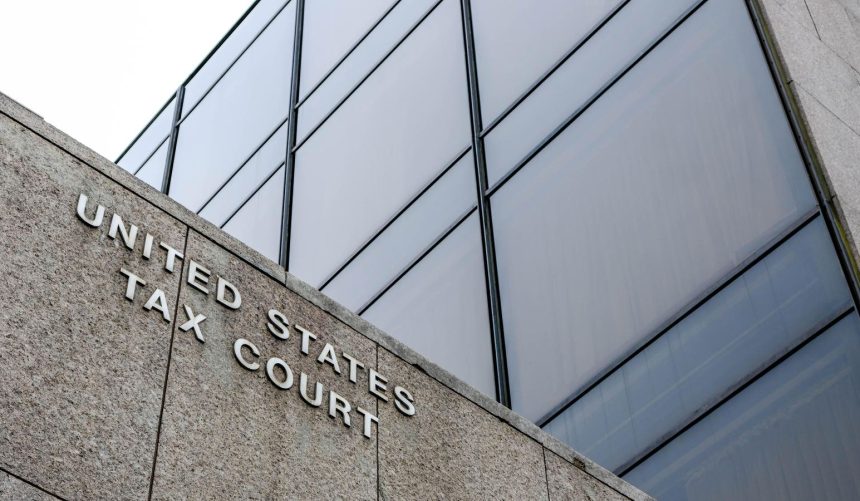Antawn Jamal Sanders has probably set a record although he is not likely pleased. How close can you get to having a Tax Court petition be timely, but still have it be late? Mr. Sanders missed by 11 seconds, maybe 9 seconds depending on how you look at it. Or maybe we could say a New York minute. The deadline is “jurisdictional”, which means that if it is missed then it’s no Tax Court for you.
About Tax Court Petitions
You and the IRS may differ about what exactly the correct amount of your tax is. There can be a significant amount of process surrounding that as when you are subject to an audit. Then you will deal with an examining agent and if you don’t like what they concluded you can appeal within the IRS. Or maybe you just don’t file or leave something off and the IRS figures it out for you. Whatever the path there may come a time when you, at least in effect, agree to disagree. At that point the IRS will issue a notice of deficiency (NOD).
The NOD is called a ninety day letter. If you want somebody entirely outside the IRS to consider the dispute i.e. the United States Tax Court you have roughly ninety days to file a petition – 150 days if you are abroad. I say roughly because there are fine points about exactly when the ninety days start and what happens if the ultimate day 90 lands on a weekend or holiday or a snow day. If you attend to Reilly’s Seventeenth Law of Tax Planning – Don’t cut your deadlines close and use the US Mail with proof of mailing –none of those fine points matter.
If you miss the deadline, you can still litigate the deficiency, but you have to pay it first, ask for it back and then bring a suit in federal district court or the Court of Claims. Putting aside the problem of having to pay it first, it can be more expensive to fight in those courts. Regardless, if you have decided that you want to fight it out in Tax Court, not getting in the door from missing the deadline is something you want to avoid.
DAWSON
Day 90 for Mr. Sanders was December 12, 2022. He had decided that he was going to use the Tax Court’s electronic system, which is called DAWSON. Now we have to get into the real fine points. When does the day end? The rule is midnight eastern time. The Tax Court is in Washington DC. Mr. Sanders had set up his account and had his petition set up as a pdf. All he had to do was upload to the system.
Sometime in the evening of December 12 Mr. Sanders decided to do the upload. The account of what happened is extremely painful. It reminds me of the times where I end up telling my partner that I hate computers. He was trying to do it with his phone, but the upload function kept being unavailable. Finally he switched to a computer as the remaining hours turned into minutes. He needed to email the pdf to the computer. There were failed logins and additional questions to answer. Finally there was a successful login. The system reported that the upload happened at exactly midnight – December 13. Digging into the logs it was determined that upload commenced at 00:00:09 and completed at 00:00:11
Help From Harvard
The Center For Taxpayer Rights filed an amicus brief in support of Mr. Sanders. Counsel for the Center is the Tax Clinic of Harvard Law School. It is not unusual for the sort of low income people that the Tax Clinic helps to be tripped up by the strict Tax Court deadlines, so the Harvard people have been in the forefront of litigating on these sort of issues.
They had some good arguments. The one I thought was best was that the Court should look at the time that Mr. Sanders logged in for the upload session which was 11:57 rather than the time when the session was completed three minutes or so later. It was as if he handed the petition to a clerk before the deadline, but the clerk did not stamp it as received until after the deadline. The petition was under government control before the deadline. The brief notes the timely mailed rule, which deems a petition timely based on when it is put in the hands of the Postal Service, regardless of how long it takes them to get it to the Tax Court.
Does Not Cut It
Judge Ronald Buch’s opinion was having none of that.
“The electronic record shows that Mr. Sanders’s Petition was received 11 seconds after midnight; thus it would be untimely under the regulations that apply in the case of an electronic return transmitter. And the Petition is untimely under the amicus’s relinquished control argument. Mr. Sanders did not relinquish control of his Petition until he initiated the upload 9 seconds after midnight. In short, the narrow exceptions that might deem a petition to be filed before the Court receives it are both legally and factually inapplicable to this case.”
Thoughts
Cases where the problems that lead to late filing of Tax Court petitions have been a staple of this blog and are the source of Reilly’s Seventeenth Law of Tax Planning – “Don’t cut your deadlines close and use the US Mail with proof of mailing“. When I told my partner about this case, she was very unsympathetic about someone letting something go so close to the deadline. I felt that way at first but that was somewhat reflective of my occasional hatred for computers. I never expect something I haven’t done numerous times to go smoothly. On reflection though the Tax Court is encouraging use of DAWSON and if all you are doing is uploading a file, a few hours should be ample. So I think Mr. Sanders should have gotten a break. Nonetheless the Seventeenth Law is sound. Try to avoid getting anywhere near the deadline and when push comes to shove give yourself enough time to print the thing out and bring it to to the post office during business hours, if DAWSON is uncooperative.
Other Coverage
Lew Taishoff has “In The Midnight Hour” –
“Takeaway, and this is a classic “Those who need it won’t read it, and those who read it don’t need it.”: Don’t trust smartphones, despite the bright words on Page 2 of the Public User Guide, that state “You can access DAWSON from your mobile device.” Just ask Antawn.”
Read the full article here










